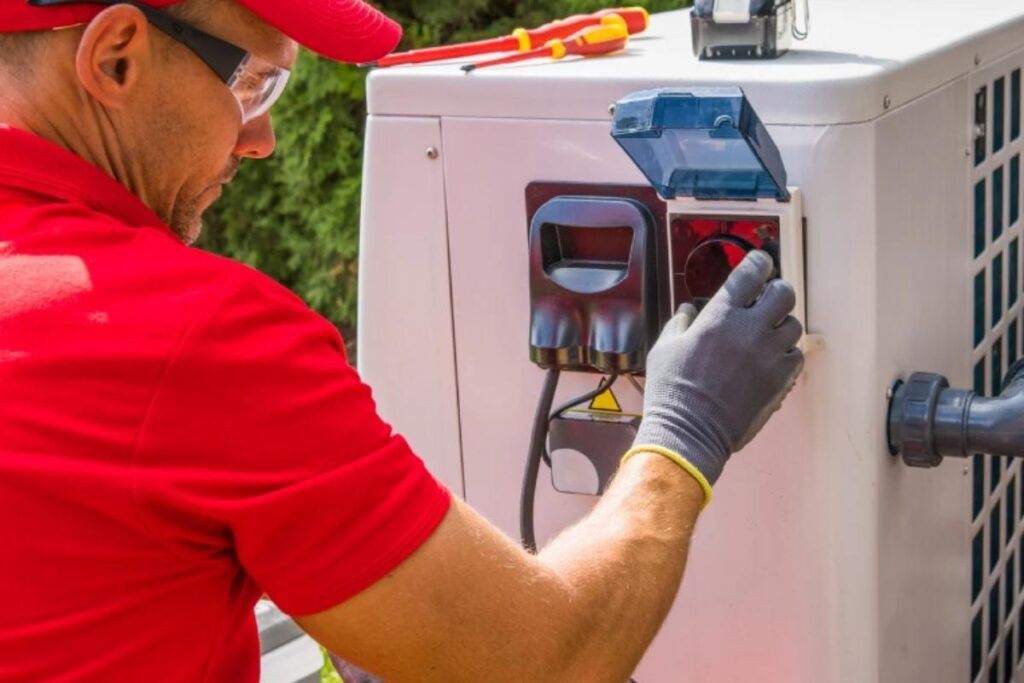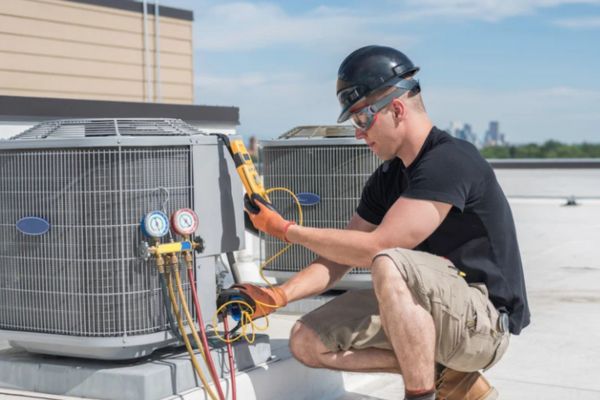Maintaining your heat pump is key to ensuring your home stays comfortable year-round without wasting energy or money. A well-maintained heat pump performs efficiently and lasts longer, saving you from costly repairs and replacements.

Why Regular Heat Pump Maintenance is Essential for Efficiency and Savings
Just like any other appliance in your home, regular maintenance keeps your heat pump running smoothly. Skipping maintenance can lead to reduced efficiency, higher energy bills, and unexpected system breakdowns.
- Regular upkeep ensures optimal performance and energy efficiency, extending the life of your heat pump.
- Ignoring routine maintenance can lead to higher energy bills and costly repairs, especially during high-demand seasons.
Air Filter Care: The First Line of Defense
Your air filters play a crucial role in maintaining good airflow and protecting the internal components of your heat pump. Neglecting them can result in poor air quality and make your system work harder than it needs to.
- Check air filters monthly, especially during peak seasons when your system works harder.
- Dirty filters force the system to work harder, reducing efficiency and air quality. Clean or replace them as needed to ensure optimal airflow.
Optimize Your Thermostat Settings
Thermostat issues are often overlooked, but they can greatly impact how well your heat pump performs. A well-calibrated thermostat can help you save energy and keep your home at the right temperature.
- Ensure your thermostat is set to the correct mode for the season, whether for heating or cooling.
- Consider upgrading to a smart or programmable thermostat. These devices automatically adjust temperatures based on your schedule, optimizing energy usage and saving on utility bills.
Outdoor Unit Check: Keep It Clean
The outdoor unit of your heat pump is exposed to the elements, making it susceptible to debris and damage. Keeping it clean and clear ensures proper airflow and system efficiency.
- Remove debris like leaves, dirt, or snow surrounding the outdoor unit to maintain proper airflow.
- Regularly inspect the unit for signs of physical damage or blockages and maintain at least two feet of clear space around it for better airflow.
Monitor Refrigerant Levels
Refrigerant is what makes your heat pump effective at both heating and cooling. Low refrigerant levels can drastically reduce efficiency and even damage your system if not addressed in time.
- Low refrigerant can impact your system’s ability to heat or cool your home efficiently, making it work harder and less effectively.
- If you suspect a refrigerant leak, contact a professional for repair and recharging. Addressing this as soon as possible is important to avoid more serious issues.
Clean the Coils to Maximize Efficiency
Dirty coils are a common cause of heat pump inefficiency. The indoor and outdoor coils must be kept clean to allow for proper heat transfer, which is essential for the system’s performance.
- The condenser and evaporator coils should be clean for efficient heat exchange. Dust and grime buildup can reduce the system’s ability to transfer heat, leading to inefficiency.
- To keep the system running smoothly, remove dirt buildup using a soft brush or schedule professional cleaning if necessary.
Professional Tune-Up: The Annual Must-Do
While homeowners can do some maintenance tasks, others require the expertise of a professional. Scheduling annual professional maintenance is the best way to ensure your heat pump is running at peak performance.
- Annual maintenance by a professional technician can catch minor issues before they become big problems. This includes inspecting electrical connections, lubricating moving parts, and checking refrigerant levels.
- Signing up for a maintenance plan with your service provider can help you stay on track and avoid missing these important annual check-ups.
By following these seven maintenance tips, you can extend the life of your heat pump and ensure it operates efficiently year-round. Regular maintenance keeps your system running at its best, saves you money on energy bills, and prevents costly repairs down the line. For professional assistance, schedule an annual tune-up to keep your system in top condition.


